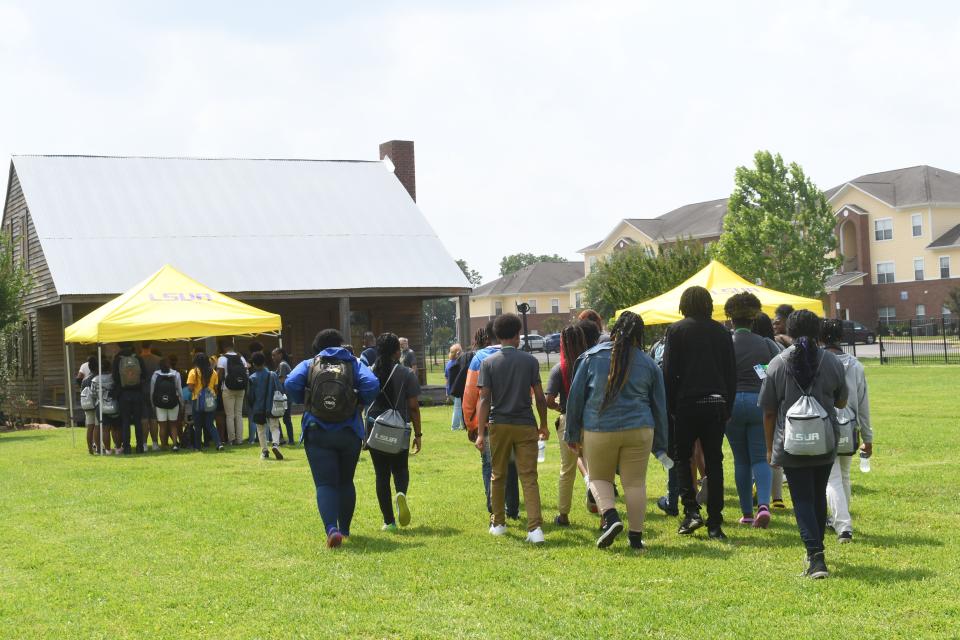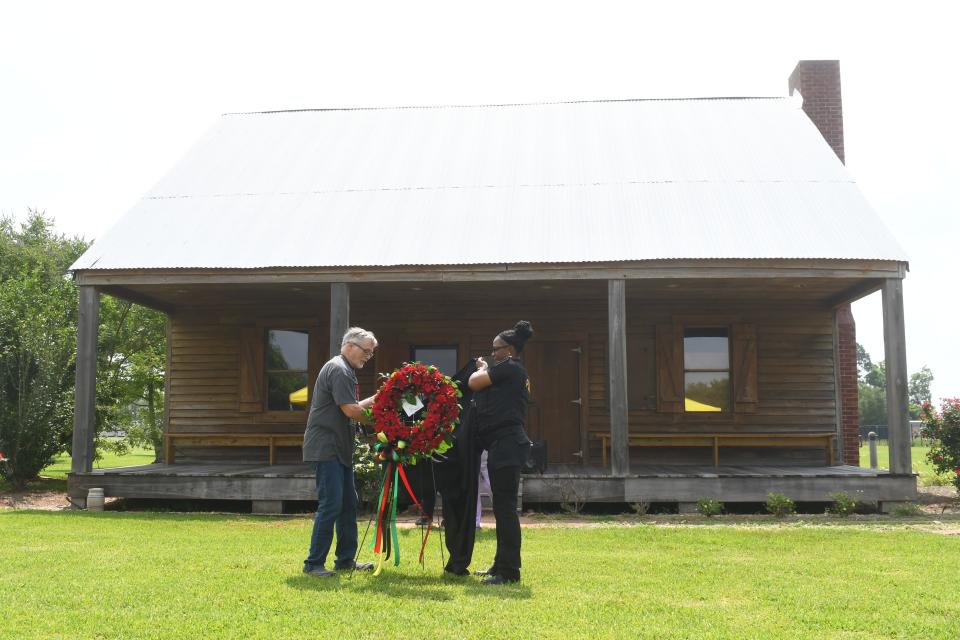LSUA Juneteenth Freedom Walk honors ancestors, celebrates freedom
- Oops!Something went wrong.Please try again later.
- Oops!Something went wrong.Please try again later.
The Juneteenth Freedom Walk held Thursday at Louisiana State University of Alexandria was both a remembrance and a celebration.
It was a remembrance of enslaved ancestors who suffered a life of cruelty and a celebration because they broke free of those bonds.
Juneteenth commemorates the end of slavery in the United States. The holiday started in Texas after Union Troops arrived in 1865 and told the slaves they were free due to President Abraham Lincoln's Emancipation Proclamation.
“Even though we were actually free back in 1863, some of us did not actually receive the word until 1865. That would be June 19, 1865,” said Connie Cooper, Director of Diversity, Equity, and Inclusion at LSUA.
Juneteenth is a somber day but it signals freedom, opportunity and “that we can continue to pursue social justice in our country and also celebrate human life, human decency, human dignity and to pursue our hopes and dreams,” she said.
A program was held in the Brumfield Caffey Ballroom prior to the walk where “Lift Every Voice and Sing” was played. Associate professor of psychology Dr. Cynthia Thomas explained the significance of the hymn also known as “The Black National Anthem.” It was written by brothers James Weldon Johnson and J. Rosamond Johnson.

She felt it was important to bring up because she noted not many people were standing or singing as the song played.
“Part of the purpose of Juneteenth is to celebrate, educate and motivate,” she said.
Thomas urged the audience to make an effort to learn it if they don’t know it. She learned it in church where it was drilled in them to learn it.
“If you don’t understand it now, you will develop a sense of pride that comes with it, that comes with understanding who you are and where you came from,” she said.
Thomas said the song represents when all people became free.
The walk began after the program.
Jamar Benjamin, a Natchitoches Central High School graduate and Northwestern State University freshman, said he was reminded of Martin Luther King Jr., and the walk over the Edmund Pettus Bridge in Selma, Ala., during the Civil Rights Movement.
“It just reminded me of the peaceful protests that they did for our rights,” said Benjamin.
A wreath was placed in front of the Epps House in honor of slave ancestors like Solomon Northup who helped build the house.
“We felt that it was appropriate to highlight the person that was enslaved,” said Cooper, especially one that was enslaved in this area close to the LSUA campus.
Northup was a free man of color from upstate New York who was kidnapped, sold into slavery and brought to Rapides and Avoyelles Parishes. He was eventually sold to Epps to whom whe was enslaved for 10 years.

While working on the Epps House, Northup befriended carpenter Samuel Bass and confided in him that he had been kidnapped and sold into slavery. When Bass traveled to New York, he contacted Northup's friends. Eventually, Northup regained his freedom.
Northup detailed his time in Central Louisiana in his 1853 narrative "Twelve Years a Slave" on which the movie is based. It won an Academy Award for Best Picture in 2013.
The house was originally located along Bayou Boeuf in Avoyelles Parish then moved to Bunkie in 1976. It was later moved to the LSUA campus in 1999.
Benjamin said that though he didn’t know about Northup “his story is our story.”
“We felt it would provide a significant learning opportunity for our campus community to be able to learn more about slavery, most importantly about Solomon Northup, and how he came to crisscross our parish during his enslavement,” said Cooper.
It’s their hope that students can connect the opportunities they have today with their ancestors and their past so hopefully they can continue their educational journey, give back to the community and become a unifying force in the world, said Cooper.
This article originally appeared on Alexandria Town Talk: LSUA Juneteenth Freedom Walk honors ancestors, celebrates freedom

